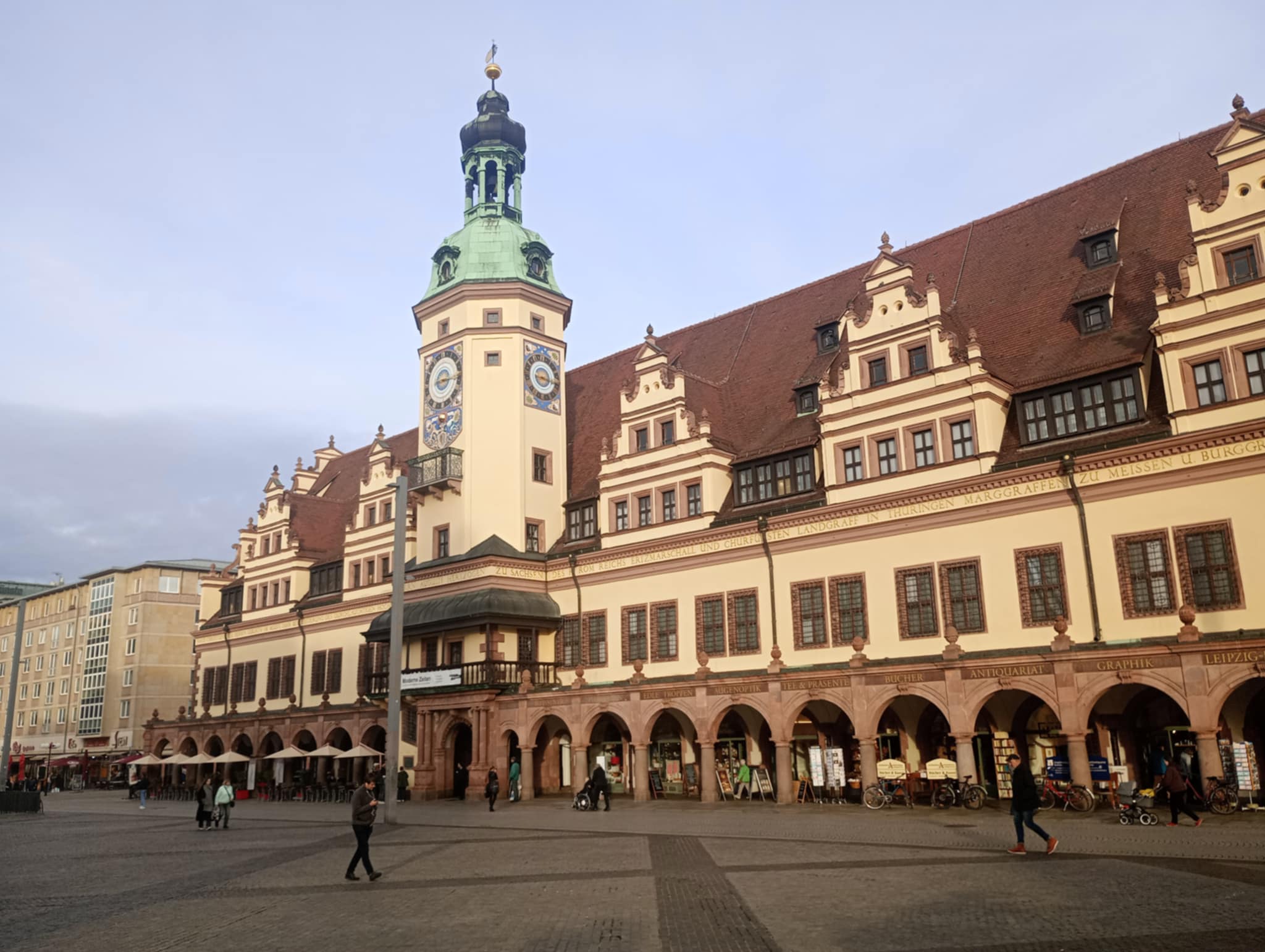DOK Leipzig 2025: The Verdict
.
VERDICT: A swansong for outgoing director Christoph Terhechte, the 68th edition of DOK Leipzig made a strong case that politically engaged, formally inventive, intellectually ambitious cinema can still play a critical role in troubled times.
It’s a rainy Saturday night in Leipzig, with a damp autumnal chill in the air. Even so, the entrance hall of the main train station is rammed with people of all ages, some perched on the cold marble floor, their eyes glued to a public screening of a documentary about the harsh economic aftershocks of German reunification on a small industrial town. This is how we party at DOK Leipzig, the world’s longest-running documentary festival, and a rich feast of serious-minded cinema for film fans who believe socially engaged, formally inventive cinema can still play a critical role in troubled times. Times, in other words, like our own.
Wrapping up for another year, the 68th edition of the International Leipzig Festival for Documentary and Animation has defied shrinking budgets and personnel reshuffles to serve up another rich program of world-class films, exhibitions, masterclass events, industry meeting and more. The festival’s outgoing director Christoph Terhechte, who steps down in January after six years at the helm, also shared a stage with his incoming successor Aleksandra “Ola” Staszel, symbolically handing over the baton in a friendly joint talk.
Balkan cinema has always been a DOK Leipzig staple, but 2025 has been a particularly strong year for the region. The festival’s main prize, the Golden Dove in the International Documentary Competition, went to Croatian director Ivan Ramljak’s Peacekeeper. Screening in Leipzig after a prize-winning run of smaller Euro-fests, this superb real-life murder thriller is a tense, gripping, moving memorial to Josip Reihl-Kir, a widely respected Croatian police chief who was assassinated in 1991 while trying to keep border conflict with neighbouring Serbia from exploding into violence. Smaller but no less accomplished, Slovenian director Srdan Kovacevic’s The Thing to be Done, a rousing snapshot of a feisty campaign group fighting for exploited and marginalised workers, picked up one of the festival’s non-statuary partnership prizes.
Films about colonialism and its lingering legacy also figured prominently this year, their heavy themes often leavened by playful, mischievous, comically quirky storytelling. The Golden Dove prize for Best Animated Feature went to Canadian brothers Seth and Peter Scriver for their wildly inventive Endless Cookie, which blends personal family memoir with lowbrow cartoon humour and deceptively sharp critique of the injustices suffered by Canada’s First Nations people. Meanwhile, Swiss director Gregor Brändli won the Silver Dove in the International Documentary section for Elephants & Squirrels, a witty post-colonial rumination on the large haul of stolen Sri Lankan artefacts currently sitting in Swiss museums.
Reflecting the wider geo-political landscape, documentaries about the ongoing wars in Gaza and Ukraine inevitably had a strong presence in Leipzig too, from frontline reportage to deeper investigations into the wider personal and social costs of the conflict. Winning the main German Documentary Competition prize was Russian-born, Germany-based Yulia Lokshina’s Active Vocabulary, a formally bold film about a Berlin-based Russian schoolteacher who enlists her students to re-enact the traumatic experience of being censored, denounced and ultimately exiled for speaking out against the war in Ukraine.
The DOK Leipzig team have strong links to Ukraine, with the Industry section hosting events in conjunction with European broadcaster ARTE’s Generation Ukraine initiative, which has supported film-makers from the embattled nation since Russia invaded in 2022. A Simple Soldier, cinematographer Artem Ryzhykov’s emotionally raw record of both fighting and filming on the frontline in Ukraine, won the festival’s extra-curricular Film Prize Leipziger Ring. And Olga Gibelinda’s Queens of Joy brought a refreshingly rare LGBT angle to the war narrative, following three Kyiv drag queens as they find alternative ways to support their country’s self-defence efforts.
As a major central European film business hub, Leipzig is renowned for its usually frenetic Industry section. This year was no different, with around 900 tightly focussed meeting between film-makers, funders, broadcasters and sale agents squeezed into just two days. As ever, several stand-out films in the main festival program had come through this speed-dating co-production process. These included Audience Jury prize-winner Cutting Through Rocks by Iranian duo Sara Khaki and Mohammadreza Eyni, and The Woman Who Poked the Leopard by Ugandan director Patience Nitumwesiga, which won two smaller awards. Both are highly assured first-time features that deliver intimate, inspirational portraits of indomitable women fighting back against repressive, patriarchal societies.
Away from the main cinemas in Leipzig’s handsome historic centre, one of the festival’s reliably great left-field treats was the annual Animation Night on Friday, which once again packed out the charmingly boho Schaubuhne Lindenfels theatre in the city’s western fringes. This year’s bill was dedicated to the short-lived golden age of the “video synthesizer”, and included some dazzling vintage examples of pre-digital glitch art alongside a woozily hypnotic electronic music set. Blurring the line between screening and concert, analogue-tech history lesson and cutting-edge video installation, this was a very DOK Leipzig moment, the kind of meticulously curated nerdcore event that no other festival can provide.

